The Week on Stage: From Romeo and Julie to The Winter’s Tale
A guide to the week’s theatre

This week, we have Shakespeare productions old (The Winter’s Tale) and new (Romeo and Julie). Plus, the second Grenfell inquiry play at the Playground Theatre and Women, Beware The Devil at the Almeida.
Romeo and Julie – National Theatre ★★★☆☆
A new Gary Owen play is a cause for celebration. The Welsh playwright is a massively underrated master, who, in works from Iphigenia in Splott to Violence and Son and Killology, has looked unflinchingly at class, politics and masculinity, with a dark, bleak humour. His latest, turning Romeo and Juliet into two working-class Welsh teenagers, has that same quick wit and urgent fury – but it’s the conceit that underserves the production.
Our star-crossed lovers are played magnificently by It’s a Sin star Callum Scott Howells and Rosie Sheehy, who shone in a recent Oleanna revival and confirms herself here as a major talent to watch. Romeo had a one-night stand and is now a single parent to the baby he didn’t mean to have, while getting little support from his alcoholic mother (a fantastic Catrin Aaron). Julie is a physics student who knows how smart she is and is set on going to Cambridge. (When Romeo asks how such a thing is achieved, she says, “You have to absolutely smash the f*** out of your A Levels.”)
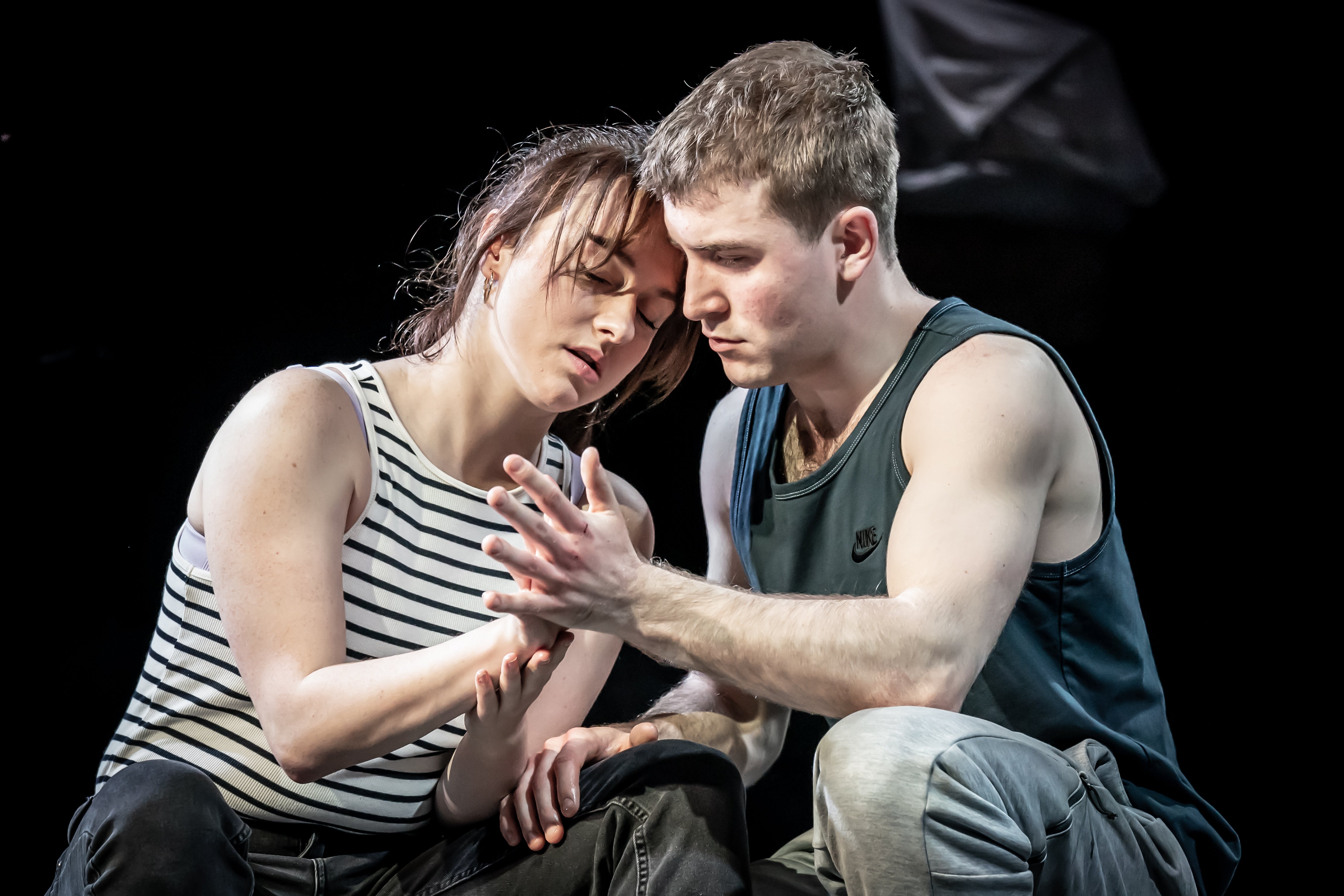
Both, in different ways, are trying to transcend the situations life has handed them, be that pursuing the academic success not expected in their town, or successfully bringing up a child when you can barely afford to buy new nappies. With such grit and determination, they are immediately drawn to one another, much to the dismay of their families. When Julie finds herself pregnant, trying to problem solve their way out of the life-altering fact of having another dependent no longer seems possible.
Owen’s frequent collaborator Rachel O’Riordan directs a production bursting with energy, with bassy music marking each scene change, and Hayley Grindle’s set bringing to mind the hanging neon sculptures of Welsh artist Cerith Wyn Evans. But the Shakespearean template feels like it slows the story down or gets in its way. Initially, the parallels feel promising, but by the end they fail to illuminate much in either the show’s themes or the play’s initial source text. There are lulls, including an over-long opening scene about changing nappies that seems to exist just to send school trips into fits of giggles. The performances are vibrant and the writing is funny and distinct, but I couldn’t stop wondering about the play this might have become had it been unadulterated Gary Owen. Jessie Thompson
The Winter’s Tale – Shakespeare’s Globe ★★★☆☆
With theatre tickets getting ever more expensive, you’ve got to applaud director Sean Holmes for serving up what feels like at least two different shows in one. His quixotic take on The Winter’s Tale emphasises the disjointed nature of the play – part tragedy, part comedy – by splitting it across Shakespeare’s Globe’s two performance spaces. The psychologically intense first act, set in the Sicilian court, unfolds by candlelight in the gilded splendour of the Sam Wanamaker Playhouse. Then, the audience wraps up warm for a chilly but altogether more fun trip to pastoral Bohemia in act two. It’s the first time both spaces have been used in a single production, but it feels like more than a gimmick. It captures the sense of adventure, strangeness and spectacle found in Shakespeare’s late “romance” plays, which can’t be straightforwardly categorised in the way his earlier works can.
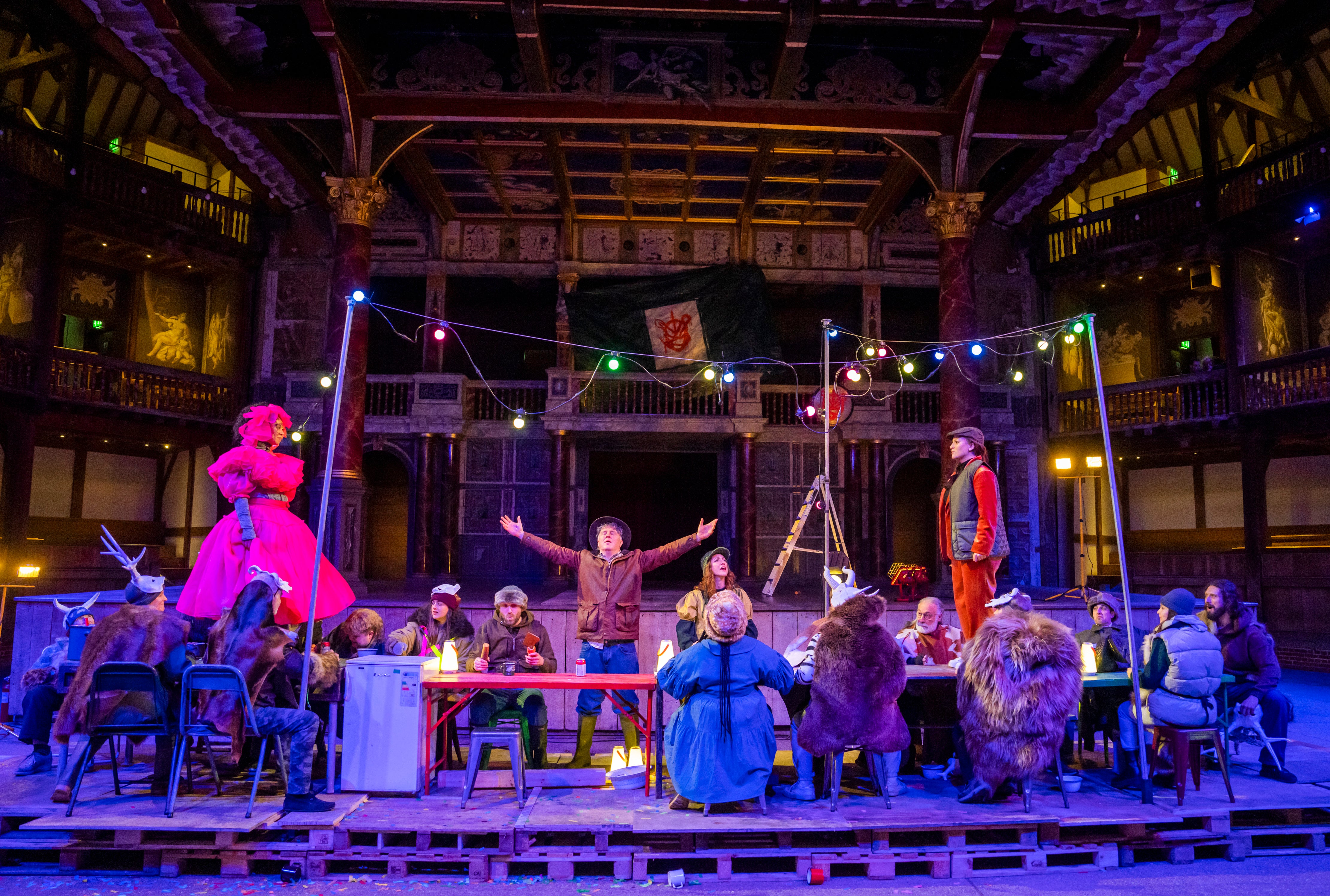
There’s a light sprinkling of the kind of whimsy Holmes is known for in act one, which turns into an extended dinner party with a series of increasingly surreal dishes unveiled from under cloches: ortolans (which the cast eat with napkins over their heads), bowls of dry ice, burgers in polystyrene packets. Still, it’s act two when the production really cuts loose: we meet Leontes’ estranged daughter at an outdoor bacchanal complete with multicoloured strings of lights, mullet-wearing shepherds and outbreaks of Mongolian throat-singing. Holmes makes free with Shakespeare’s words, getting ready laughs with ad-libs and pop culture references, as well as dance numbers that get the audience cavorting in the chilly night air. After all that playtime, it feels like a shock to be called back inside for act three, and it’s also a bit of a disappointment that the staging of this play’s most notoriously odd moment (a statue coming to life) is handled in a fairly conventional way. The happy endings of Shakespeare’s plays can easily feel like a formality, loose ends neatly stitched in. That’s true here – except for a hint that Leontes’ jealous suspicions weren’t unfounded. This play is all about redemption, about what’s lost being joyfully regained, and Hermione and Leontes’ ambivalent reunion here undermines that. Still, if this show is missing a little heart, it’s full of enough silliness and wonder to light up the coldest winter’s night. Alice Saville
Grenfell: System Failure – Playground Theatre ★★★☆☆
On the way to the Playground Theatre, the streets are covered with murals and tributes to those who died in the Grenfell Tower fire. A stone’s throw from the site where that tower block burned in 2017, killing 72 people, writers Richard Norton-Taylor and Nicolas Kent are staging another verbatim reconstruction of the recently concluded inquiry into the fire. There’s no attempt to entertain the audience, the aim instead is to get these stories told. As a piece of theatre, it’s to the show’s detriment, but as a document and educational tool, Grenfell: System Failure is vital.
Where 2021’s first instalment, Grenfell: Value Engineering, told a story of deliberate cost-cutting that preceded the fire, System Failure focuses on the ways that the blaze could have been prevented and stopped. We hear harrowing testimonies from survivors and watch members of the local authority, fire service, government and building regulatory services squirm and pass the blame. It’s hard not to be both moved and angered by these stories; the audience responds with incredulous guffaws, gasps, and in one case, a shout of “wanker”.
The show is not theatrical – the set, as is common in Kent and Norton-Taylor’s work, accurately recreates a courtroom, with its cold atmosphere and cheap wood furniture. The dialogue is just as clinical, full of jargon and acronyms. The testimonies, delivered precisely as they were at the inquiry, speak for themselves, no embellishment needed. As Richard Millett QC, Ron Cook leads the questioning, never raising his voice or losing his cool. There’s a powerful simplicity to his performance, as Millett lets the witnesses tie themselves in knots with the most basic of questions.
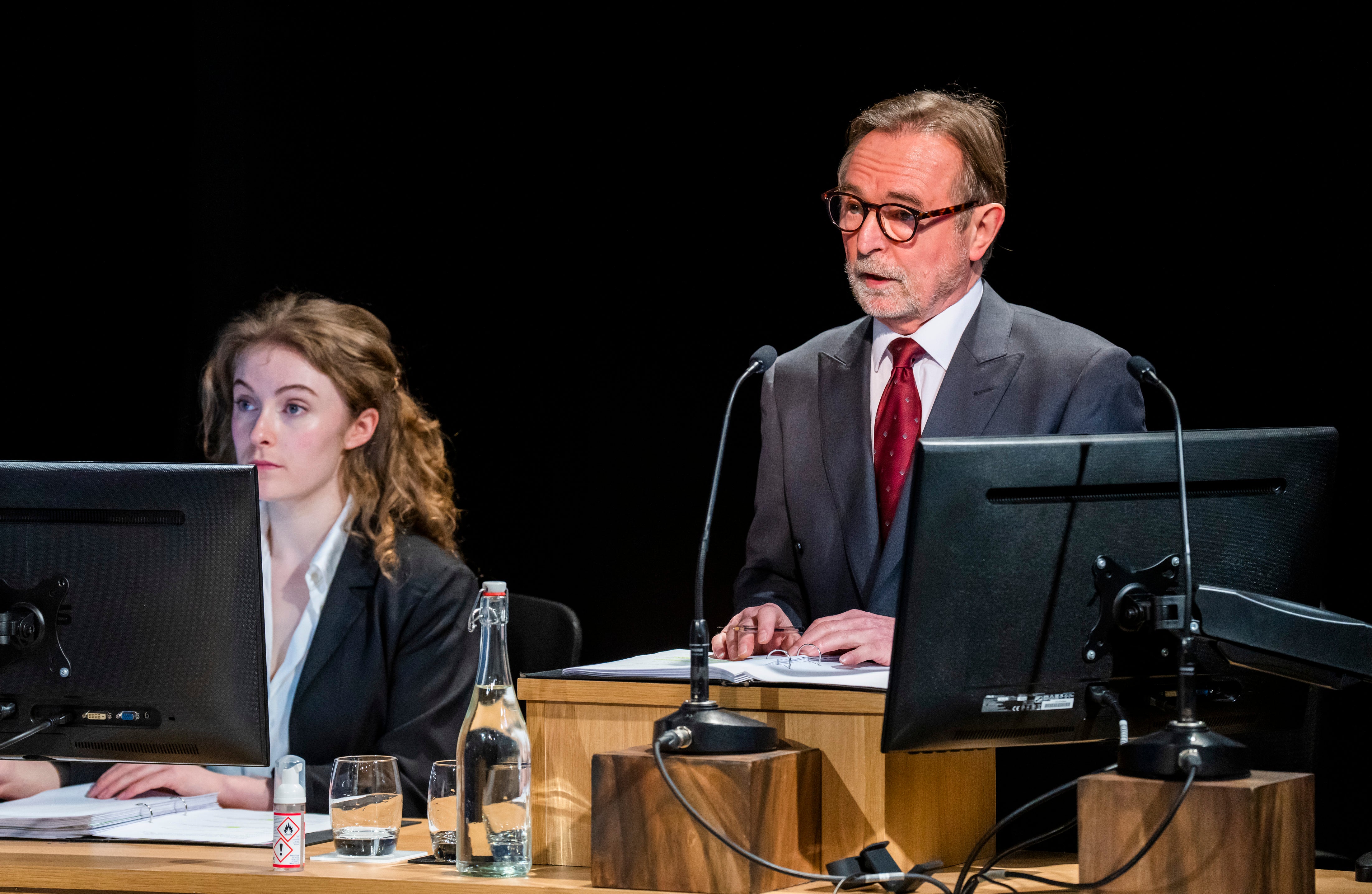
The story of Grenfell is unrelentingly bleak, but the refusal by anyone in power to take responsibility is so brazen, comments such as “fire safety is a very subjective subject” so vague, that they are often met with horrified laughs. The actors, however, play the testimonies totally straight, with the exception of Howard Crowley as Lord Pickles, who gives a jarringly comic performance as the already caricatured Tory peer. Among the serious subject matter, it feels out of place.
The overwhelming message from System Failure is just that: failure and negligence at every stage. The audience’s palpable anger doesn’t just stem from how easily preventable this all was, but the lack of one specific figure to blame. Asked why concerns about the cladding were raised but never prompted any change, one witness admits: “Tragically, I think they just got forgotten and fell through the gaps.” That is the heartbreaking tragedy of Grenfell. Isobel Lewis
Women, Beware The Devil – Almeida ★★★☆☆
Women, Beware the Devil, yes. But as it turns out, in this new play from Lulu Raczka, women also beware infantile brothers, misogynistic preachers, and other women. But before all of that, Satan himself shows up on stage, horns and all, to welcome the audience. Looking forlorn, he laments a time when he was actually given credit for his work doing terrible, unspeakable things. “Now, it’s all systemic… patriarchal… institutional.” And from there, we are swept back to 17th-century England – the good ol’ days when evil was evil. Or was it?
It’s one of many questions beating at the bloody heart of Lulu Raczka’s play, directed by Rupert Goold. Set against the rumblings of civil war, Agnes (Conversation with Friends star Alison Oliver) is a stablehand rumoured to be a witch. Elizabeth (Lydia Leonard) is the lady of the house who, desperate to save her crumbling home from her bratty brother (a wonderfully wheedling Leo Bill), cuts a Faustian deal with a reluctant Agnes. If Agnes can use witchcraft to trick Elizabeth’s brother into marrying, then she can leave the fields behind and become a lady’s maid. From there, it’s a helter-skelter of incest, betrayal, revenge, blood sacrifices, and Freaky Friday body swaps.
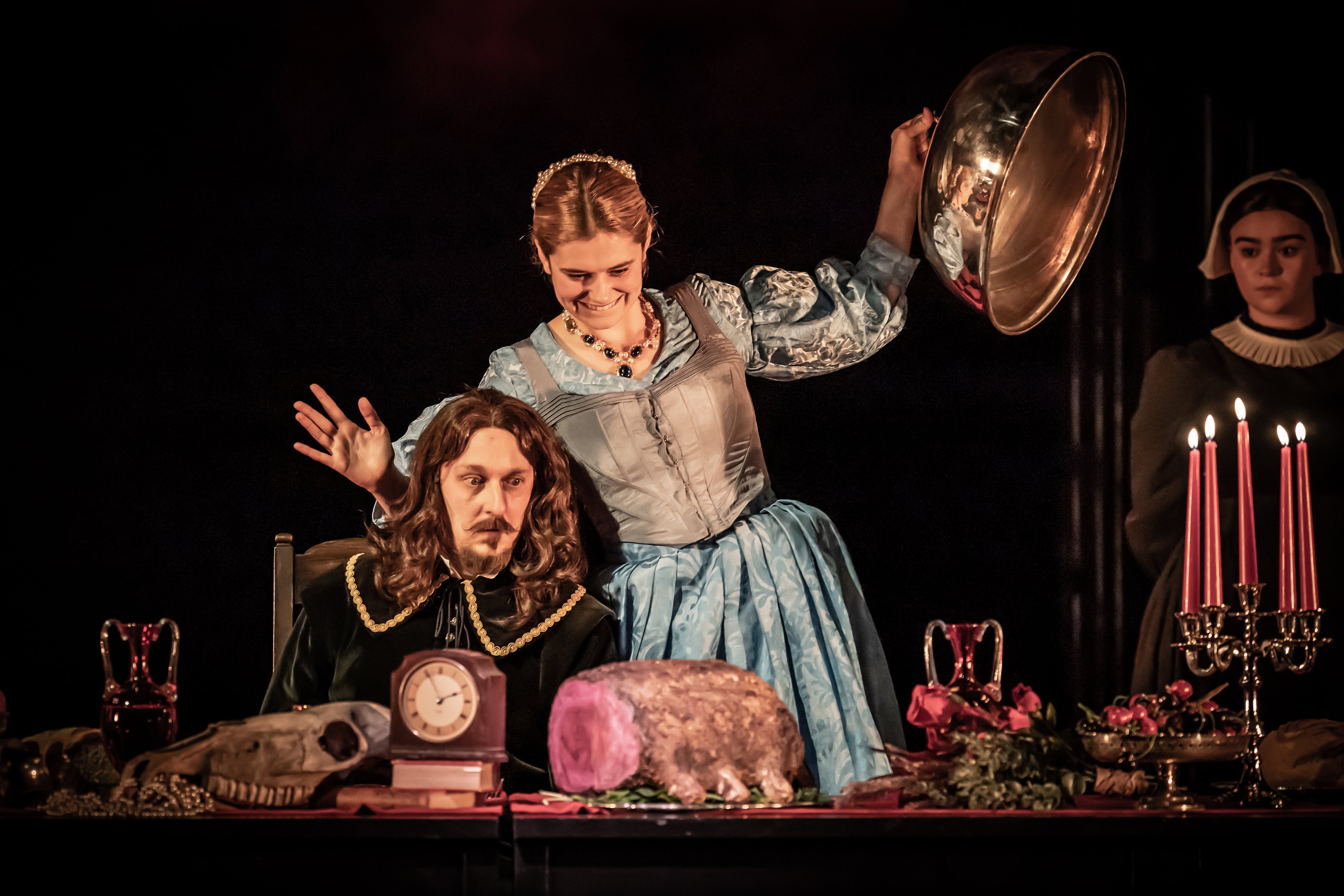
The performances are excellent – Leonard and Oliver square up to one another in fierce fashion – and Miriam Buether’s set is a monochromatic, mutable marvel. Tim Lukin’s lighting masterfully moves us from the decadence of a feast scene lifted from a Dutch painting to an anachronistic sci-fi coolness, sometimes simultaneously. There is something very 2001: Space Odyssey in the air; the ornate, old-timey furnishings awash in that white, fluorescent glare. Raczka’s story, though, is less clear. Her script could be making any number of possible points – about good and evil, history and tradition, gaslighting and abuse, nature and nurture – but for the life of me, I’m not sure which (if any) are, in fact, being made. Nonetheless, there is something risk-taking here – thrilling, even when hard to follow, and devilish in its audacity. Annabel Nugent




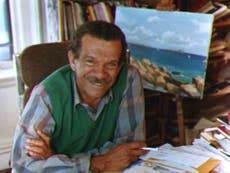

Join our commenting forum
Join thought-provoking conversations, follow other Independent readers and see their replies
Comments